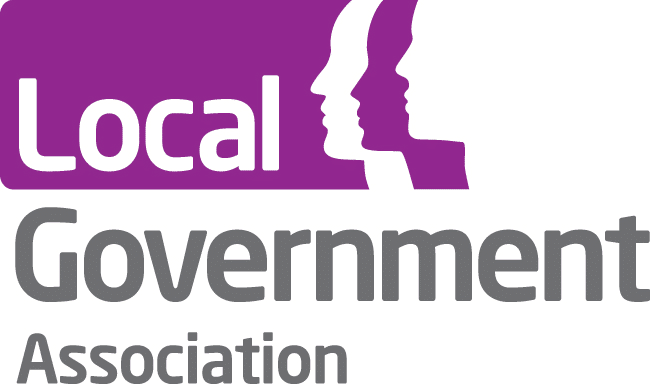This Month In Social Housing: February 2025
It’s hard to believe we’re already in March – wasn’t it just Christmas a moment ago? Time is racing ahead, and so is the ever-evolving world of social housing. From funding updates to policy changes and sector-wide challenges, the pace hasn’t let up for a second.
But as the days grow longer and the first signs of spring begin to emerge, it’s a good moment to take stock of everything that’s been happening. With so much to keep track of, This Month in Social Housing is here to bring you the biggest stories and key developments shaping the sector. Here’s what’s been making waves over the past month…

Over 70% Of Housing Associations Boosted ASB Resources in Past Year
Over 70% of landlords increased resources for specialist anti-social behaviour (ASB) teams between 2022-23 and 2023-24, according to research by Housemark. The study, based on data from 111 English housing associations, reveals a growing focus on tackling ASB as part of consumer regulation. More than half of landlords (53%) employed specialist ASB staff in 2023-24, up from 42% in 2022-23, with a 10% average increase in resources. The analysis found a correlation between more specialist staff and higher ASB case rates, suggesting that increased capacity leads to more effective action. The report also highlighted the importance of proactive tenancy management and collaboration with police to prevent escalation and improve ASB case handling, ensuring better community outcomes.

High Court Declares DWP’s Direct Payments to Landlords Under Universal Credit ‘Unlawful’
The High Court has ruled that the Department for Work and Pensions’ (DWP) practice of deducting money from Universal Credit (UC) payments to pay landlords directly, without consulting the claimant, is unlawful. The case, brought by a tenant in dispute with his landlord, the Guinness Partnership, challenged the DWP’s practice of making “diversionary” and “recoupment” payments to landlords for rent arrears without giving the claimant an opportunity to challenge the deductions. The court found this process procedurally unfair, as claimants were not informed or consulted beforehand. In response to the ruling, the DWP has pledged to overhaul the system, allowing tenants to contest the payments within seven days. This change aligns the social housing sector’s process with that of the private rental market, where tenants have more rights to dispute such deductions.

Government Announces Date for Awaab’s Law to be Implemented Across Social Housing Sector
Awaab’s Law will be enforced across the social housing sector starting in October 2025, Deputy Prime Minister Angela Rayner has confirmed. The law, named after Awaab Ishak, who died in December 2020 from a respiratory condition caused by “extensive” mould in a one-bedroom social housing property where he lived, mandates that social landlords address damp and mould hazards within set timeframes. Initially, the law will focus on damp and mould, with further expansion in 2026 to cover other hazards like cold, heat, and fire. By 2027, it will address all hazards in the Housing Health and Safety Rating System. The law aims to improve tenant safety and empower renters to challenge unsafe conditions. The Housing Ombudsman welcomed the law, urging landlords to act promptly and modernise their repair practices to prevent health hazards.

Councils Warn of £8bn Funding Shortfall Over Next Four Years
English councils have warned of a potential funding gap exceeding £8bn by 2028-29, according to the Local Government Association (LGA). The LGA called for more financial support from the government, as councils face rising costs from inflation, demographic changes, National Insurance contributions, and increased demand for services. Despite the government’s commitment to a three-year funding settlement, councils are still under severe financial strain due to years of funding cuts. The LGA’s analysis projects that without additional funding, councils will face increasing deficits, with a £1.9bn gap in 2025-26, rising to £8.4bn by 2028-29. Louise Gittins, chair of the LGA, warned, “Without adequate investment now, we risk not being able to deliver crucial services that so many depend upon,” urging the government to provide sufficient funding in the upcoming Spending Review to avoid further strain.

Ombudsman Advises Landlords To Maintain ‘Robust Records’ To Manage Damp And Mould Effectively
Housing providers have been urged to strengthen their inspection processes ahead of Awaab’s Law by the Housing Ombudsman, who stressed the importance of maintaining “robust records” to manage damp and mould effectively. The Ombudsman’s latest report highlights how poor communication and record-keeping have hindered landlords’ responses to residents facing health hazards. Ombudsman Richard Blakeway warned that landlords need to implement a triaging system to prioritise cases, ensuring vulnerabilities are noted and appropriate actions, such as accelerating repairs or offering temporary moves, are taken. “Central to an effective response is the landlord’s diagnosis of what is causing damp and mould,” Blakeway said. The report outlines four common failings: incomplete inspections, conflicting reports, poor communication, and a lack of follow-through on inspection recommendations. One notable case involved a Greenwich Council resident whose baby was prescribed an inhaler after a year-long delay in addressing mould. With Awaab’s Law set to come into effect in October 2025, the Ombudsman emphasised that communication must be open, specific, and timely. “With Awaab’s Law, these silences will need to stop”, Blakeway stated. “We hope these cases help landlords learn from complaints and improve their responses.” To learn more about how Mobysoft’s RepairSense platform can help social landlords with compliance, head over to our microsite and book a demo.
And that’s all for this month’s round-up! We’re all off to be seduced by first glint of sunlight post-5pm and try firing up the BBQ – only to remember it’s still a bit too chilly and end up back inside with a cup of tea and a Jaffa cake.
As always though, we’ll be back around the same time next month with more news, insights, and analysis. Until then, auf Wiedersehen!
- This Month In Social Housing: March 2025 - April 1, 2025
- This Month In Social Housing: February 2025 - February 28, 2025
- This Month In Social Housing: January 2025 - January 31, 2025